The Tour de France is highs and lows, flat stages and high mountains, abandons and podiums, gourmet dinners and mediocre crap. As the French say, I had a jour sans, a day without — I felt slow and short on humor.
The day began in beautiful Aurillac, the start of stage nine to Carmaux. A flat race profile and I was pretty flat myself. I’d picked up a head-cold which seemed to make everything irritating. The drive through the countryside was stunning but I didn’t stop to take pictures. When I arrived, the team buses were late and the Village du Depart wasn’t open yet. Last year’s buzz about just being in France felt gone at least for the moment. I’m a creature who needs sunshine.
Well, the sun it out, it’s hot and humid, the air heavy. The French radio pundits call it air “charge de l’humidite.” I can’t decide what the plan for the day is: stay and wait for the team buses to arrive, get some great photos and an interview or two or hit the road before it’s too late and drive the race route. Never know what goodies you’ll find along the way — a must for mountain stages — and my concrete plan for Luz Ardiden coming very soon.
I go to the Village du Depart for the free food and drink. A strong coffee, a tiny fruit cup, some sugar biscuits and two small pours of local chardonnay and I’m coming around. Still, what to do… I need Lance Armstrong to kick my ass or something.
I’ve learned in the last two years that covering a bike race in person can be exhausting and frustrating. That’s why you need a team, people at the start, finish, camera and video on the motos and guys in the press room who never leave, not even when the race finishes 100 feet away — they can see it better on the HD flat screen. It’s moving so fast, in so many places that you can’t keep up.
So the game is always to plan and know what your limited goals are for the day. Know who you want to interview, who you want to photo, your angle, story idea, logistics, timeline — something. Otherwise, you have to improv — which also leads to some fantastic material — but you have to then trust your instincts and go for it. Like most things in life, over-think and hesitation are not rewarded. The moment a rider attacks, he doesn’t look back, it’s full gas and that analogy applies.
Generally, I’ve been lucky and trust my instincts more and more. Somehow, someway, things often work out, but then I’ve had some shit days that were so worthless and debilitating that I should have stayed in the hotel and watched the race from bed. You drive and drive and drive, fighting traffic and getting lost and just getting fried on the daily grind. You work so hard to see so little. Then again, that little morsel is what nobody at home gets to experience and sometimes that morsel rocks.
This day in Aurillac I was in trouble because I didn’t have a plan and instinct hadn’t given me one yet. I was off whatever game I brought. Part of the issue was I had a plan that was floundering. I wanted to focus on the passion Basques have for cycling. First hitch, I don’t speak Spanish and the Basque language may as well be Egyptian.
I was hoping I might catch Euskatel Euskadi DS Igor Gonzales de Galdeano but nobody was stepping off the orange bus. I was also praying I’d hear from one or two Basque groups of fans traveling to the Luz Ardiden stage. I wanted to hang with them and I was running out of time and that story was dying fast.
Clock was ticking and the axe was falling — the caravan was about to leave. Run to the car or stay put and miss the race route, just drive the hors course route and see the finish. No guarantee there either. Sometimes they put the salle de presse so far away it’s not worth the 30 minute hike to see the sprint when the TV is right in front of you. (As would be the case this day.)
The weather went downhill fast and rain fell, then hail! The caravan had gone but there was now no reason to linger. I did the hors course but moved quickly enough that I made up time on the caravan. Still, I saw Cavendish win on a French flat screen with 200 other journalists. Not exactly up close and personal.
I was beat and the cold wasn’t getting better. I dialed up the small town where I was staying on the GPS and received the dispiriting news: over an hour drive out into the country. The GPS couldn’t even locate it really, so I input a larger town nearby.
On the drive, I remembered again how lonely the Tour can be when you’re covering it by yourself. I envy the teams of buddies who share the driving and the ups and downs. Someone to at least share a drink and dinner. I don’t mind “me” time but when you’ve got yourself for company 24/7 you start asking too many destructive questions.
Finally, I made it to this charming small town called Plaisance. The old stone two story building was set on a narrow, zig-zag street just up from a small river. The furnishings were well done, the welcome warm and the kitchen closed.
There was a restaurant down the street called La Legend and I sat outside with a half carafe of passable red, some cut of grilled meat and a tons of frites. It wasn’t half bad but it wasn’t the magnificent dinner I had the night before at the Auberge Saint Clement. The flies however were terrible and I left early.
I crashed hard, feeling congested and worn and concerned about the lack of contact with my Basque leads. It was simply a long day without much accomplished.
My story isn’t that far removed from anyone covering the Tour de France. It’s a hard road and you do it because you love the sport, love the access, love finding the drama and humor. No other sport I can think of has the richness of professional bike racing. It’s an honor to have press credential and I feel a responsibility to add something of value.
Some days are good, some days are not so good. Take your hardest three months of work, compress it into three weeks, then add a minimum of 3 to 4 hours of driving a day and sleep deprivation and add a language hurdle that makes every exchange just a little more complicated. That’s the Tour.
Like riding in the race itself, the guys who are successful covering the sport are energetic, focused and perhaps most of all, know how to roll with the punches. You’re gonna crash at some point, riders keep riding and you keep writing not matter what happens.

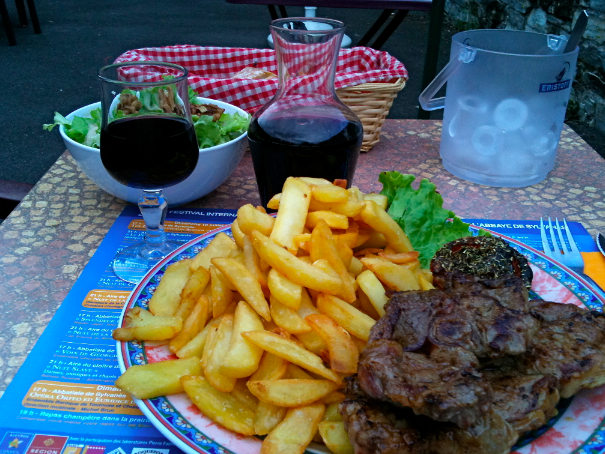
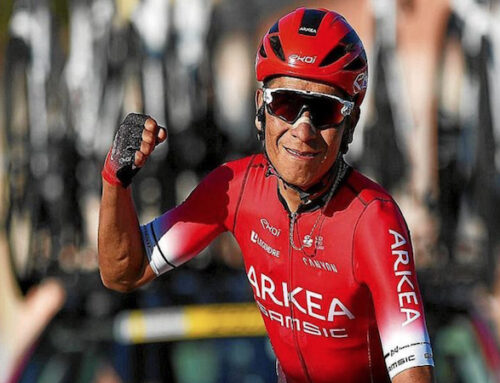
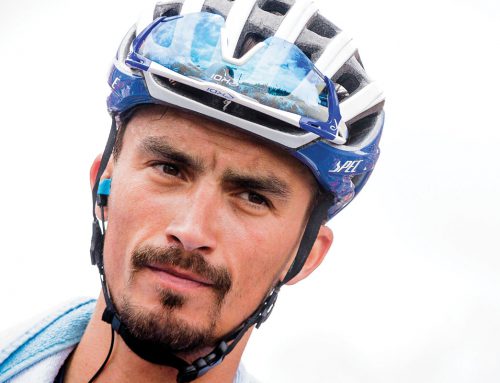
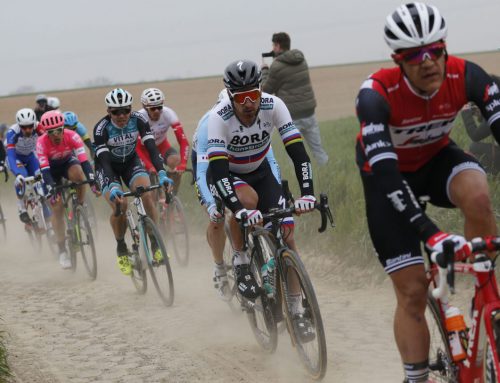
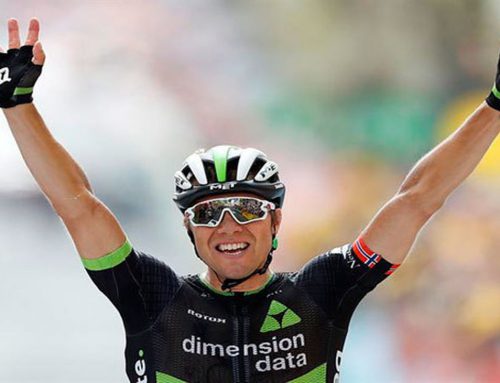
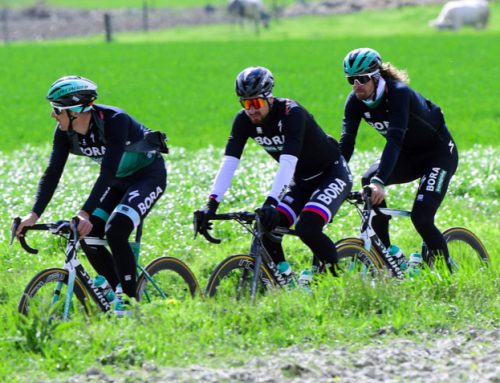
Leave A Comment